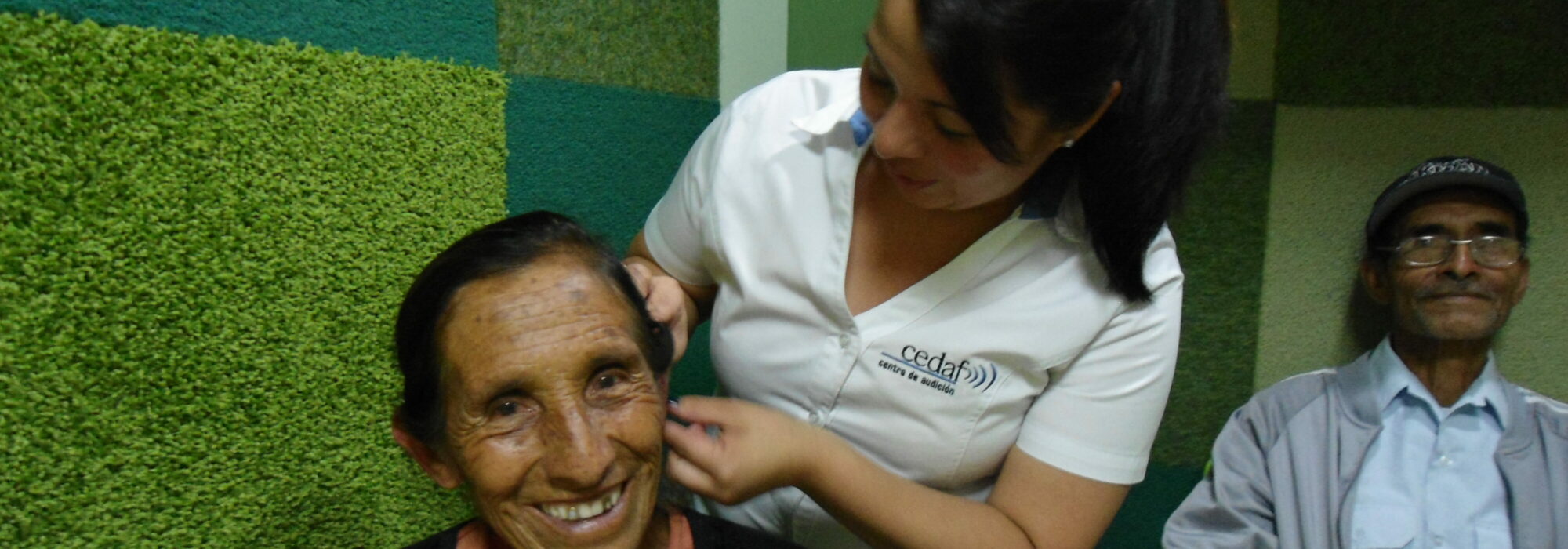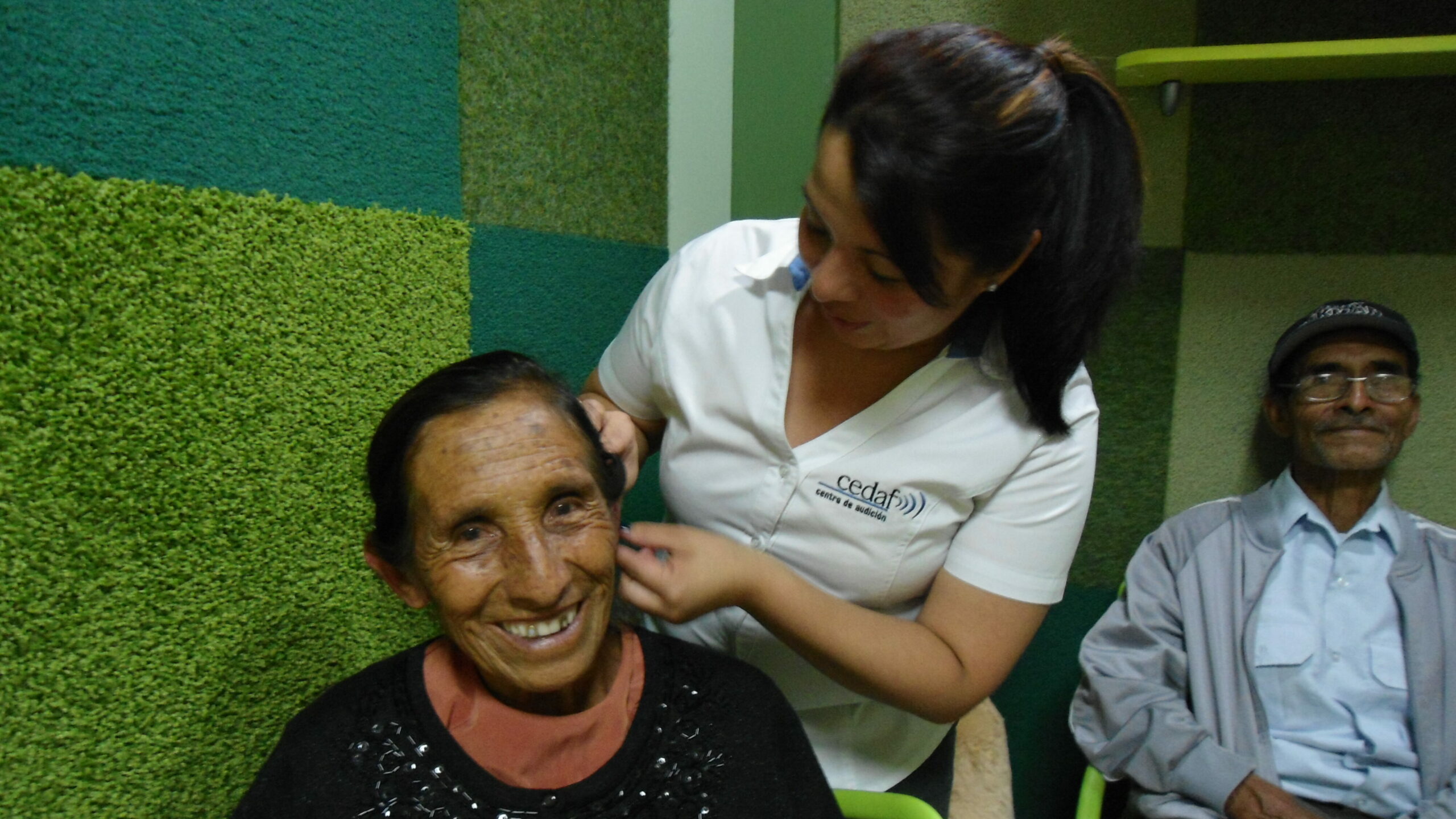
New study reveals the power of hearing aids in Guatemala
A research team set out to measure the impact of hearing aid use on the well-being of local adults. Their findings may surprise you.
In 2016 our Foundation, Sonrisas que Escuchan in Guatemala was asked to participate in the first-ever investigation that would demonstrate the impact that the use of hearing aids has on an adult’s life in Guatemala As you might guess, we agreed to participate. The results were eye-opening.
Hearing aid users in the study reported:1
- Positive experiences with the use of their devices (such as better communication with family and friends, greater security and self-confidence)
- Fewer symptoms of depression
- Improved quality of life in various domains (more evident in psychological, social and environmental relationships)
- 82% reported satisfaction with their hearing aids
- 88% reported enjoying life more after starting using the hearing aids
- No change in the socio-economic status, measured by spending. However, before using hearing aids, they spent more time on household chores. After the hearing aid fitting, they spent less time on household chores and more time on paid chores or self-employment.

The investigation was a collaboration between my foundation and the International Centre for Evidence in Disability, World Wide Hearing Foundation and the London School of Hygiene and Tropical Medicine. The objective of the study was to evaluate the impact that hearing aid use has on the socioeconomic situation, quality of life, mental health and participation in activities in Guatemalan adults.
Here is a brief summary of the methodology we used:
- We selected 200 adults with hearing loss ranging from moderate to profound, who lived in and around the capital city.
- Our social worker selected a control group of 146 adults without hearing loss of similar ages from the same area.
- All the adults (with hearing loss and the control group) were interviewed by Mark Spreckley, PhD, from London South Bank University.
- Interviews included an extensive structured questionnaire with questions about socioeconomic status, quality of life, mental health, and participation in activities.
After that, we fitted the hearing aids (Phonak Baseo Q15 model) which were donated by World Wide Hearing. The fittings were mostly binaural.
Follow-up research verifies the initial results
We maintained close contact with hearing aid users as we wanted to ensure that they used the devices and that programming was optimal. All of us from Sonrisas who participated were in charge of scheduling follow-ups every 3 months for 18 months. During these visits, the devices were serviced, the users were asked about the operation of the devices and the graduations were verified.
Nine months after receiving the devices, Mark returned to Guatemala and began the second phase of interviews with all the participants. He used the same questionnaire document in order to be able to compare the answers. Valuable data was obtained, which those of us who fit hearing aids and witness the change in our patients might anticipate.
For Sonrisas que Escuchan and especially for me as an audiologist, it was a very valuable experience. It was a true learning activity as we visited the homes of many of the participants and that was an eye opener to another reality. In addition, it made us think that all levels of technology offer the opportunity to bring happiness, security and communication.
We know that not everyone can use state-of-the-art, but a well-fitted hearing aid with services at hand offers a great opportunity to people who might not otherwise be able to hear.
You can find the complete results of the study here.
Reference:
Spreckley, M., Macleod, D., González Trampe, B., Smith, A., & Kuper, H. (2020). Impact of Hearing Aids on Poverty, Quality of Life and Mental Health in Guatemala: Results of a before and after Study. International Journal of Environmental Research and Public Health; 17(10):3470.
